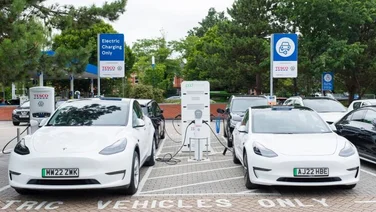On Saturday 5th September, climate change activist group Extinction Rebellion delayed the distribution of several national newspapers after blocking access to three printing presses owned by Rupert Murdoch.
More than 100 protesters used bamboo structures to block roads outside the Newsprinters printing works at Broxbourne in Hertfordshire, Knowsley in Merseyside, and Motherwell in North Lanarkshire.
XR members also used vehicles – covered with “Free the truth” banners – to block roads to the printing plants, while individual protesters chained themselves to structures.
But why did they carry out these protests? Is there any truth behind XR’s claims?
“We know the former Special Representative for Climate Change, Sir David King, has said he was repeatedly stopped from speaking out on climate by No. 10 under David Cameron and Theresa May for fear of upsetting the Murdoch press.” #FreeTheTruth https://t.co/yI0dnJutB4
— Extinction Rebellion UK 🌍 (@XRebellionUK) September 8, 2020
The reason behind the protests
Extinction Rebellion states that this dramatic protest was meant to draw attention to “the disgraceful true colours of our ‘free’ press”.
“What we read in the papers is controlled by a handful of powerful billionaires who feed us stories that suit their interests. The truth about the terrifying emergency we face has been locked up for too long by corrupt media moguls and dodgy politicians, who jostle for power and undermine our democracy.” – Extinction Rebellion
Although the UK is home to a handful of national newspapers, a huge percentage of them are owned by billionaire businessman Rupert Murdoch.
In April 2019, an investigation by The New York Times found that Murdoch used his media holdings to sway elections in Australia, the UK, and the US. Extinction Rebellion says this control of politics by the media is having a knock-on effect on other national issues, including climate change.
How much are UK newspapers actually reporting on climate change?
As part of their newspaper blockade announcement, Extinction Rebellion claimed that Murdoch’s newspapers are staying silent about climate change.
To test this, we collated information on how many climate change articles were published in January of each year since 2000, across an array of different newspapers. Compare the results below:
Data from Media Coverage and Climate Change
As you can see, since the year 2000 the Guardian has almost consistently been reporting on climate change more than all other news outlets in the study. In comparison, The Sun and Daily Mail seem to be barely speaking out about this pressing matter.
However, the Times’s results make Extinction Rebellion’s argument slightly flawed. Also owned by Rupert Murdoch, this newspaper is often battling for pole position on the chart – suggesting that the Murdoch empire isn’t totally silent on climate change.
Nonetheless, XR’s statement suggests that the newspapers they have targeted “are not reflecting the scale and urgency of what is happening to our planet.” So, although these newspapers are still covering climate change, XR feels it is not enough coverage.
How are people reacting to the protest?
In true Extinction Rebellion style, the roadblock has caused a wave of divisive opinions. Whilst some believe this act has increased awareness of unbalanced national media, others argue that this protest is an act of anti-democracy in itself.
Prime Minister Boris Johnson spoke out about the event on Twitter, declaring that the actions of these environmentalists were ‘unacceptable’.
A free press is vital in holding the government and other powerful institutions to account on issues critical for the future of our country, including the fight against climate change.
It is completely unacceptable to seek to limit the public’s access to news in this way.
— Boris Johnson (@BorisJohnson) September 5, 2020
Home Secretary Priti Patel also condemned the activists’ protest, suggesting that the government may even take a fresh look at how the group is classified under the law.
In response to this, Labour MP Diane Abbott defended XR and compared the group to the suffragettes, saying it would be “ridiculous” to reclassify them as an organised crime group as they are “not criminal, they are protesters and activists”.
Another Labour MP, Lloyd Russell-Moyle, wrote a tweet that arguably sums up the essence of the climate group: “Whether you agree with the tactics of XR, they are right to highlight the concentration of media and their appalling climate change record”.
5 billionaires own the majority of British newspapers, this is not free plural press it’s monopoly control that hinders free press.
Whether you agree with the tactics of @XRebellionUK they are right to highlight the concentration of media & their appalling climate change record pic.twitter.com/xQ7VdaSqyk
— Lloyd Russell-Moyle MP🌹🇪🇺🏳️🌈 (@lloyd_rm) September 7, 2020
These protests – often deemed as ‘extreme’ – aren’t an attempt to get viewers to like or dislike the group, they’re an ongoing attempt to raise awareness of climate change… And it’s certainly got us talking.






